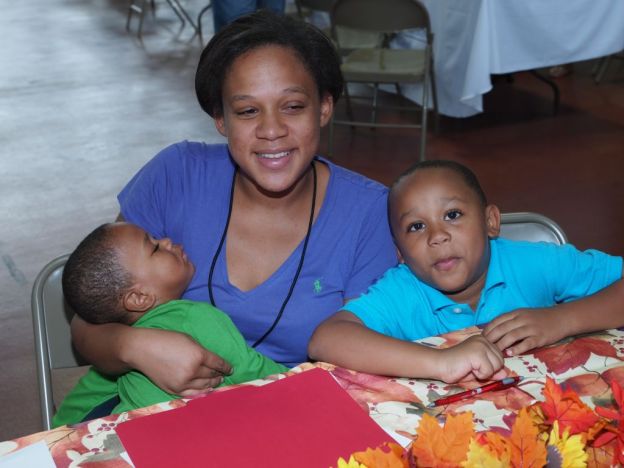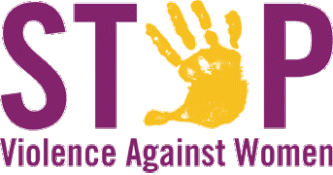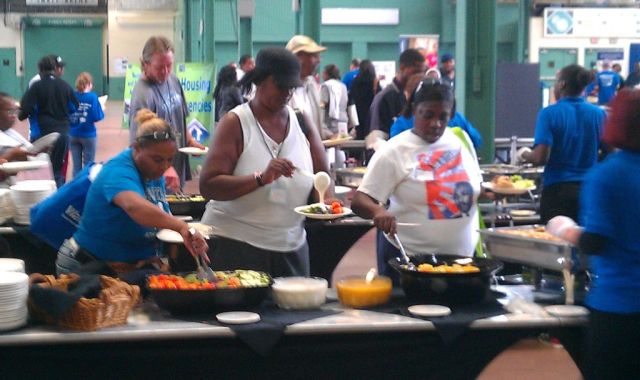Veterans dealing with economic hardships, mental health and/or addiction challenges make up a significant portion of the homeless population and face the greatest risk of becoming homeless. According to CACH’s Homeless Services Reference Manual, veterans facing poverty have a one in 10 risk of experiencing homelessness over the period of a year. CACH’s 2012 Point in Time survey found that 14.2% of the 281 homeless respondents were veterans.
There are many services available to help homeless veterans, especially for veterans living in Dauphin County and surrounding areas. CACH member organizations in Harrisburg that have programs to specifically serve homeless veterans include Bethesda Mission, Shalom House, and the YWCA of Greater Harrisburg, which are included in CACH’s Homeless Services Reference Manual.
According to Bill Reed, director of veterans services at the YWCA of Greater Harrisburg, the YWCA does a lot of work to help homeless veterans. The YWCA extends these services for homeless veterans to several counties, which include Dauphin, Cumberland, Lebanon, York, Lancaster, and Perry counties.
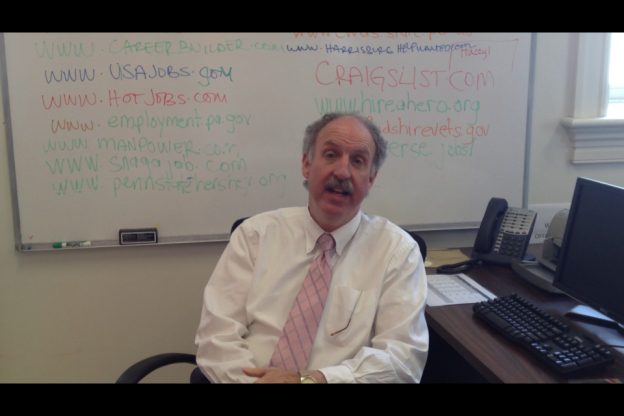
Pictured above is Bill Reed, YWCA of Greater Harrisburg’s director of veterans services. When the YWCA began offering services to homeless veterans in 2006, Reed had just retired from the military and was hired for the program.
Thanks to grants from the Department of Labor, the YWCA offers two key programs to homeless veterans: the homeless veterans reintegration program and the homeless female veterans/veterans with families reintegration program. “Both of these programs are [geared] to helping homeless veterans find employment, which will lead to housing and self-sufficiency,” Reed said. The current annual goal for the Homeless Veterans employment Programs is to enroll a minimum of 94 homeless veterans, and an additional 30 homeless female veterans and/or veterans with families.
According to Reed, the YWCA of Greater Harrisburg also offers three transitional housing programs to homeless veterans through the Department of Veteran Affairs. These programs offer 16 transitional beds, which the YWCA provides through partnership with the Harrisburg Area YMCA. Reed said that there are also five permanent housing positions for chronically homeless, disabled veterans, which are supported through the Department of Housing and Urban Development.
A recent addition to the homeless veterans’ housing programs offered through the YWCA of Greater Harrisburg is Transition in Place (TIP). This program, which is funded through the Department of Veteran Affairs, offers homeless veterans and homeless veterans with families transitional housing that follows the “Housing First” model.
According to Reed, “It’s transitional housing, but instead of it being in an institutional setting, the case manager and homeless veteran locate an apartment in the community where the veteran would like to actually live permanently.” For this program, the YWCA provides assistance with basic needs, rent, utilities, case management, and employment. Once the veteran obtains sufficient income for self-sufficiency, they assume the lease and remain at the chosen apartment.
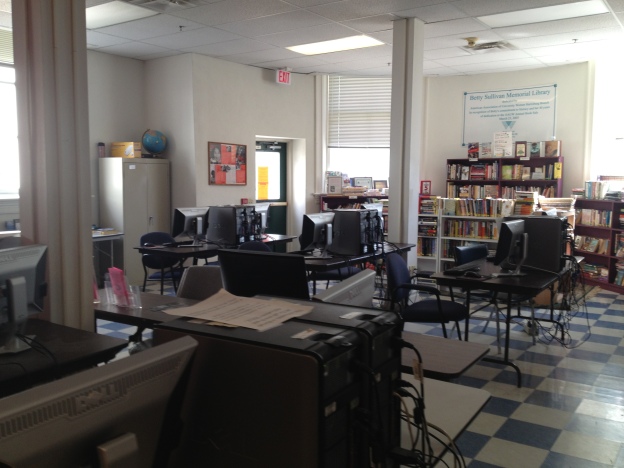
This is the job club room at the YWCA of Greater Harrisburg. It is one of the many services the YWCA offers to homeless veterans, where homeless veterans can work in the online computer lab to find employment.
According to Reed, the YWCA of Greater Harrisburg also sponsors an annual event called the Homeless Veterans Stand Down. This event is similar to CACH’s Project Homeless Connect, but Stand Down is exclusively for homeless veterans. This year’s event, which was held February 22nd through February 24th, served 53 homeless veterans. Reed said this event has grown and increased the services provided through collaboration with a number of agencies and groups that support veterans. One key partner at Stand Down is the Lebanon VA Medical Center, which is a health care organization that provides quality health care to veterans.
According to Reed, in addition to the services provided by the YWCA Veterans programs, several other organizations provided services at the Homeless Veterans Stand Down. These organizations included the Department of Veterans Affairs, Department of Labor, PA National Guard, PA Department of Military and Veterans Affairs, Department of Education, PA Career Links, Veterans of Foreign Wars, American Legion, Military Order of the Purple Heart, Onsite Health, PA Bar Association, American Red Cross, and the Disability Rights Network. Reed said that many more organizations and individuals provided services and volunteered their time and resources at the Stand Down.
The Homeless Veterans Stand Down offers many services, which include but are not limited to, employment services, medical screenings, dental services, Post Traumatic Stress Syndrome (PTSD) services, drug and alcohol services, suicide prevention, counseling, legal services, health and comfort.
CACH is very proud to work with the YWCA of Greater Harrisburg and our other members that offer services to help homeless veterans. For more information about YWCA of Greater Harrisburg’s homeless veteran programs, you can contact Bill Reed at 717-234-7931, extension 3126, or e-mail him at wreed@ywcahbg.org.

